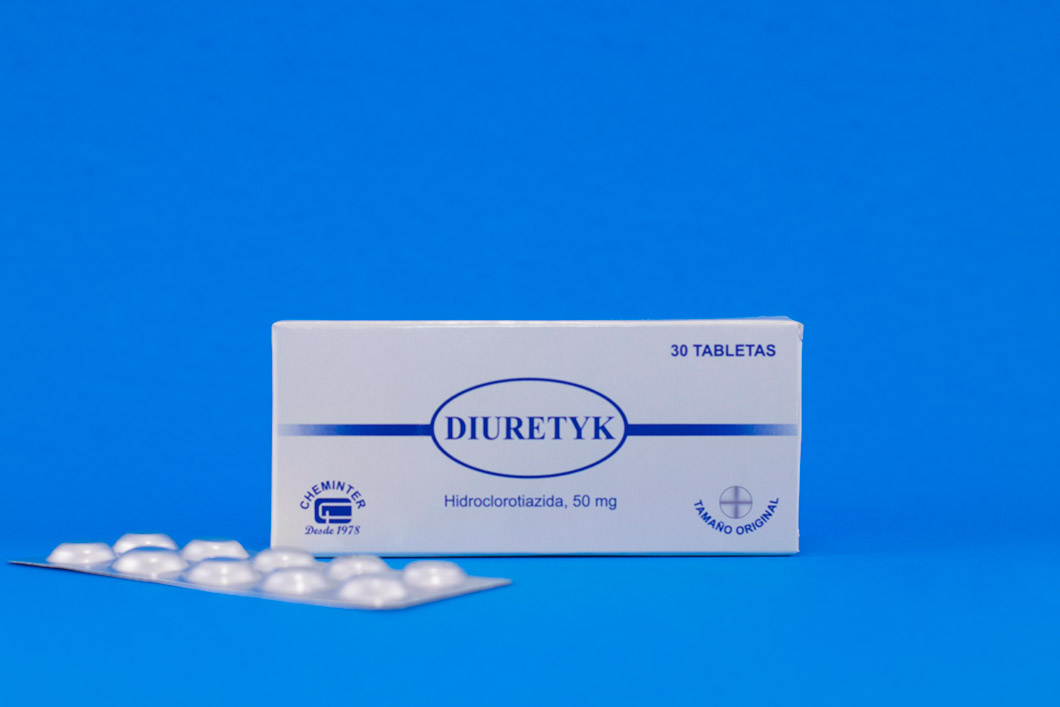The author of this article is a researcher and health-centered writer who loves to get into the fusion of traditional therapies and modern medicine. Being deeply interested in wellness, nutrition, and the history of medical practices, the writer is determined to present an all-encompassing, accessible and balanced information to the readers about complex health issues. By such articles as this one on diuretyk, it aims to inform its audience, encourage safe standards and facilitate the process of cultural and scientific convergence.
Introduction
Diuretic is a Latin word derived out of the Polish word Diuretic, a type of substance or medication given to the body to aid in releasing any surplus fluids within the body by means of urination. The name might sound highly technical but the idea behind it is closely related to the human health, medical practices and even the eating habits. Over the centuries, it has been known that some natural herbs, drinks, or subsequently pharmaceutical medics can induce the kidneys to excrete more water and salt. This procedure has been applied in the treatment of various health disorders as well as in the provision of balance to the body.
The functions of diuretics, diuretyk as it is often pronounced in Polish, go much deeper than only making people urinate more frequently- it deals with the control of blood pressure, the management of swelling, the prevention of some problems with the heart and even the detoxification of a body. Due to the fact that water balance in the body is one of the most inherent aspects of life, the popularity of the topic of diuretics both in the medical and in the context of wellness in general. Human body is composed mostly of water and the allocation of this water within the body in cells, blood vessels and organs should not exceed a certain equilibrium.
When such a balance is broken by an illness, diet, genetic tendencies, etc., the results may be the presence of swelling of the tissues, high blood pressure, or the load on the heart and kidneys. At that point, diuretyk is put into play- it helps to restore balance and stabilize the body as well by stimulating the body to produce what it does not require. In this blog post we are going to dig deep into the concept of diuretyk. In the following lines we shall discuss its medicinal uses, its various forms, the natural sources which may serve as mild diuretics, the risks attending its abuse, and its applicability to contemporary health practice.
We shall also explore the cultural and historical importance of the diuretics, and how this mere notion has been integrated into both ancient herbal medicine and modern scientific drugs. Certainly, by the time you finish this article, you will have a balanced picture of what the term diuretyk is about, why it is important, and how it directly or indirectly impacts the lives of millions of people around this world.
The Concept of Diuretyk in Medical Science
In medicine, the term diuretyk is used in a narrower, more specific sense to refer to medications prescribed by physicians to stimulate the urine and electrolyte (primarily, sodium and chloride) excretion. These drugs directly affect the body by attacking the kidneys with the job of filtering the blood and deciding how much water is to be held or to be discarded. With the intake of a diuretyk, the urine triggers the kidneys to secrete more sodium. This causes more urine because water is the follower to sodium. There are numerous health conditions that doctors prescribe diuretics.
It is used most often to treat high blood pressure, or hypertension. The buildup of excess water in the blood system raises the volume of blood circulating in the body thereby exerting pressure on the blood vessel walls. Diuretics decrease the volume of the blood, which decreases the pressure on the cardiovascular system. This has seen diuretyk become a foundation of management of hypertension especially among patients who cannot mainstream the use of lifestyle changes such as diet and exercise. A second significant medical application of diuretics is in edema (swelling due to the build-up of fluid in the tissues), the medical term of swelling.
There are many causes of edema; they include heart failure, liver cirrhosis, kidney disease and even drug side effects. Diuretyk can help to decrease swelling, take away discomfort, and avoid complications by making the fluid get out. Besides these, diuretics are also used to treat individuals with some kidney issues, glaucoma and even some specific hormonal conditions. Such wide variety of applications proves that the usage of diuretyk is not only a one-purpose drug but a key component of the therapeutic set of a physician.
Types of Diuretyk and How They Work
It is not that every diuretyk works in the same manner. Researchers and pharmaceutical scientists have over the years evolved various types of the diuretics each is directed towards particular processes in the kidneys. A significant one is the thiazide diuretic that is frequently the initial line of defense against high blood pressure. Thiazides are effective in that they decrease sodium reabsorption moderately in a section of the kidney called the distal convoluted tubule. This results in stable yet not excessive fluid loss and therefore they become ideal in the long term treatment of hypertension.
The other category is the loop diuretic which targets the loop of Henle which is an essential structure within the kidney filtration system. Loop diuretics are far stronger and are reserved in the case of emergencies or severe illnesses, like heart failure acute fluid build up. Due to their power, they may lead to fast and drastic changes in the level of fluids, which not only can be life-saving but also dangerous when not observed. Next we have the potassium-sparing diuretics that are unique by the fact that they enable the body to lose excessive water and sodium but conserve potassium.
Potassium is an essential mineral that is instrumental in nerve and muscle activities including the heart. Most other diuretics lead to loss of potassium and this is risky thus potassium-sparing diuretics are applied in the case where balance is a major concern. Lastly, we have osmotic diuretics and carbonic anhydrase inhibitors, which are less frequently utilized but equally play significant roles in medicine, e.g. by means of lowering intracranial pressure or by treating glaucoma.
All of these categories of diuretyk imply their indications, advantages, and dangers. What holds them together is the common aim to control water and electrolyte balance in the body to enhance better health outcomes.
Natural Sources of Diuretyk
Even before the development of pharmacy products that are used as diuretics, individuals worldwide depended on the natural remedies to treat water retention and swelling. Some plants, herbs and foods possess low diuretic effects; that is, they inherently prompt the body to release more fluids. An example is the long-standing use of dandelion as a natural diuretyk by the traditional European herbal medicine. It is also safer because its leaves contain potassium and some of the synthetic diuretics lead to depletion of potassium. In a similar manner, the seeds of parsley, celery and green tea have been reported to have fluid-reducing effects.
Even caffeine, found in coffee and tea is already regarded as a mild natural diuretic, which explains why most people tend to feel the need to urinate after taking these beverages. Though natural diuretics do not tend to be effective enough to cure severe health conditions, they are worth the money in terms of overall well-being and avoiding mild forms of fluid retention. As an illustration, people who experience the bloating effect of salt in the diet might be relieved by eating natural diuretic foods. But, as in the case of medical diuretics, moderation and consciousness must be observed.
Over consumption of herbal diuretics without the medical care of a physician may lead to dehydration or electrolyte imbalance.
Risks and Side Effects of Diuretyk
In spite of all the positive aspects, diuretics also have certain hazards, particularly when abused. They may lead to imbalances because they directly affect the level of fluids and electrolytes in the body in case they are not taken with care. Dehydration is one of the common side effects and may result when excess water is lost out of the body. The symptoms are dizziness, dry mouth, fatigue and confusion. The second common issue is the decision to lose electrolytes such as sodium, potassium, and magnesium. There is a risk of muscle cramps, weakness and even life-threatening disruptions in heart rhythm caused by low potassium levels especially.
Long-term users of diuretics have to regularly test their blood to make sure that the levels of electrolytes do not change dramatically. To prevent complications, doctors may prescribe potassium or use a combination of diuretics and potassium-sparing options. In addition, diuretics may have interaction with other drugs. In the case of some drugs, say of heart, or of blood pressure, their action may be increased or decreased by adding them to those. This is the reason medical supervision is essential whenever a person uses diuretyk as a form of therapy.
Diuretyk in Modern Wellness and Lifestyle Trends
In addition to their medical application, diuretics have been discovered in wellness, fitness and even beauty. Others take natural or synthetic diuretics to make the body a few pounds lighter or look skinnier in the meantime. Since the effect of fluid loss is that the body weight decreases on the scale, in certain instances, diuretics are abused by athletes, models or individuals with the need to lose weight very quickly. Nonetheless, this is a deceptive habit and even dangerous. The diuretics cause loss of weight but not the fat and it can be easily regained by normal hydration once it is restored.
More to the point, too much loss of fluid may damage the kidneys, the heart and the functionality of the body in general. Health caregivers highly discourage the use of diuretyk to lose weight. Rather, they insist on proper nutrition, physical activity and lifestyle modification over time. Concurrently, the concept of the integration of natural diuretics in everyday food remains trendy. Hydration and mild fluid balance are regarded as supported by drinks such as herbal teas or foods such as cucumbers and watermelon. This demonstrates that although diuretyk cannot be abused, its role in daily wellness will still play an important role when taken in moderation.
Historical and Cultural Perspectives on Diuretyk
The idea of stimulating urination is not novel. The ancient humanity was aware that some plants and remedies would help decrease the swelling or water retention. Due to traditional Chinese medicine, diuretic herbs were used to treat ailments that were related to dampness in the body. In Ayurveda the ancient system of Indian medicine, they were used with the help of such herbs like coriander and fennel under similar principles. In Europe, medieval herbalists used to recommend parsley, Juniper berries or dandelion to treat urinary and digestive issues.
In the course of time, after medical science developed, these ancient methods prepared the base to the invention and creation of the current diuretyk drugs. The cultural aspect of diuretics underscores the manner in which human civilizations had always been trying to find a means of ensuring that there was a balance in the body. The health pursuit has always crossed the line of diuretyk, whether in the type of rituals, diets or prescriptions, throughout centuries.
Frequently Asked Question (FAQ)
Tell me the meaning of Diuretyk?
It is a Polish word which means diuretic, meaning those substances which augment urine manufacture by kidneys.
Are natural diuretics safer in comparison to pharmaceutical diuretics?
Natural diuretics are usually more mild and safe to use on a daily basis, yet they cannot subdue medical therapies on severe ailments without a doctor.
Is there a role of diuretics in weight loss?
They do not decrease fat, but may temporarily reduce weight by decreasing water. Lifestyle changes are needed to lose weight in the long-term, as opposed to using diuretics.
Have diuretics any impact on the heart?
Yes. They may help take the work off the heart by lowering blood pressure and decreasing fluid buildup but may also result in heart rhythm problems when potassium levels are too low.
In use of diuretics, should there be medical advice?
No. Due to the dangers of dehydration and electrolyte imbalance medical surveillance is highly advised in case of taking pharmaceutical diuretics.
Conclusion
Diuretyk is not just a urination boost due to its origins in natural wellness and medical science. It is an important process in the aspect of balance in the human body that deals with high blood pressure, edema, and kidney disorders. Although the pharmaceutical diuretics of the modern world are essential in medical care, natural diuretics still supplement them in the daily well-being measures. Nevertheless, the applications of diuretics are associated with liabilities. The results of misuse or excessive use may be dangerous: dehydration, an electrolyte imbalance, and the overworking of major organs.
It is, therefore, crucial because one needs education, awareness, and medical advice to use them safely. Diuretyk can be seen in the larger context as a symbol of human struggle to achieve a balance, between traditional herbal medicine and contemporary prescriptions. Its narrative suggests the fact that water, health, and life are much more intertwined than one might think.

